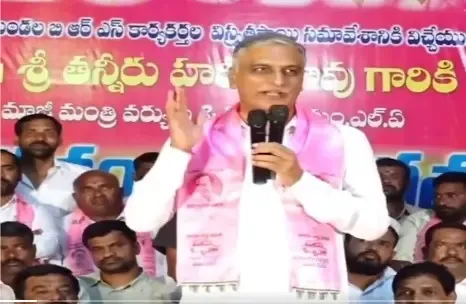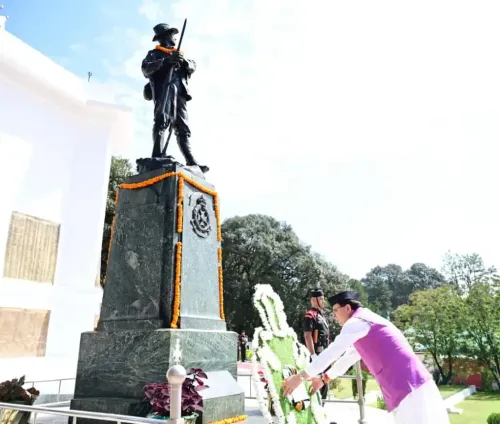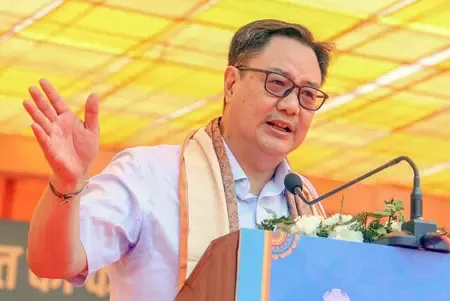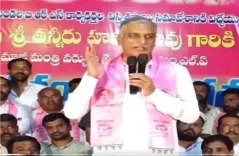Is FairPoint: Blood in PoK Exposing Pakistan's Narrative and the Silence of Kashmiri Leaders?
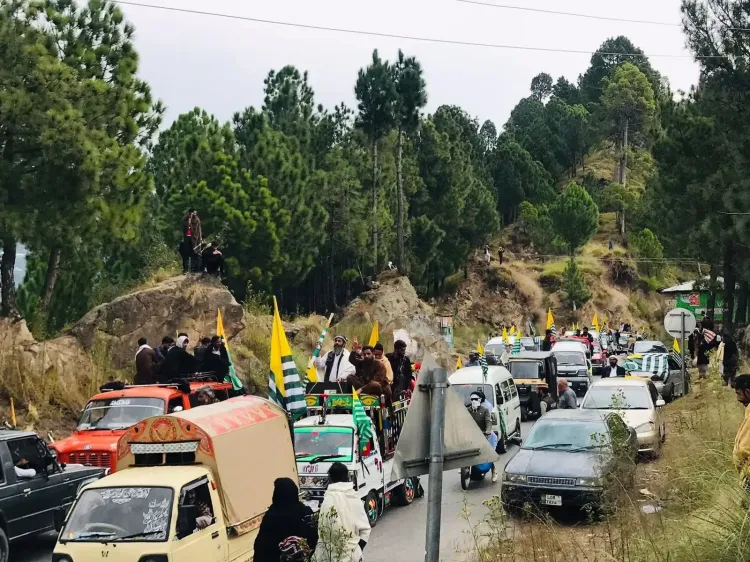
Synopsis
Key Takeaways
- Pakistan's narrative about Kashmir is challenged by real events in PoK.
- Silence from Kashmiri leaders reveals hypocrisy amidst ongoing violence.
- Protesters in PoK demand basic necessities, highlighting systemic issues.
- The contrast between J&K and PoK underscores differing realities.
- India's position emphasizes accountability for human rights violations.
New Delhi, Oct 5 (NationPress) It is ironic that Pakistan, which refers to Kashmir as its "jugular vein", has instigated a reign of terror in the illegally occupied segment of India's union territory. Innocent civilians are being mercilessly killed, communication lines are severed, and their narratives of horror are intentionally suppressed.
However, videos surfacing from Pakistan-occupied Kashmir (PoK) have revealed the falsehoods that Islamabad has been propagating since 1947. These clips have also unveiled those who, for years, have insidiously fueled anti-India propaganda regarding the situation in Jammu and Kashmir.
For more than 35 years, separatist voices have asserted that the Muslim majority in J&K was "subjugated". Leaders backed by Pakistan, such as Syed Ali Shah Geelani, Shabir Shah, Yasin Malik, and Abdul Gani Bhat, have vehemently criticized the Indian government while openly promoting Pakistan's interests.
Their sinister campaign, cloaked under the guise of "azadi", involved the forced exodus of Hindus from the valley, paving the way for an Islamic Kashmir to merge with Pakistan. Nevertheless, their deceptions never materialized. Following the abrogation of Article 370 on August 5, 2019, Jammu and Kashmir has been fully assimilated into the Union of India.
Today, Pakistan's persistent lies about Kashmir are backfiring on its leaders. The unrest in PoK not only dismantles their narrative but also reveals the factions within India that have aligned with Islamabad's propaganda and continue to be swayed by Pakistan's deceit.
Interestingly, those who accuse India of human rights violations in Kashmir remain mute about Pakistan's atrocities in PoK. Where are the so-called champions of "human rights" now? Figures like Farooq Abdullah, Omar Abdullah, Mehbooba Mufti, Sajad Lone, Engineer Rashid, and members of banned separatist groups have chosen silence.
These politicians often raise their voices against human rights violations—rare as they may be—but stay silent when the Pakistani Army slaughters its own citizens. Shouldn't they be protesting in the streets? Their selective silence exposes their hypocrisy.
Instead of condemning the violence, some continue to incite valley youth against the Indian government. Mehbooba Mufti, for example, tweeted: "From Uttarakhand to Ladakh & across the border in Kashmir, Gen Z is rising. Because when your future feels bleak & your dreams are shattered -- resistance knows no borders."
By drawing parallels between Pakistan's brutal repression and local issues, she evaded denouncing the violence in PoK—likely to avoid angering Pakistan's deep state. Yet, leaders like her must acknowledge that the bloodshed in PoK today is a consequence of seven decades of decay instigated by Pakistan itself.
The residents of PoK demand bread, electricity, education, hospitals, jobs, and dignity. Rather than establishing industries and schools, Pakistan's rulers have transformed PoK into a hub for terror camps. Since 1988, it has served as a launchpad for terrorism against India. India's surgical strikes—and the recent Operation Sindoor—have dismantled many of these camps, eliminating hundreds of terrorists.
In stark contrast, today's Jammu and Kashmir is on a trajectory toward peace and prosperity. Millions of tourists are visiting, businesses are flourishing, and central government initiatives are benefiting rural areas. Development is now reaching the grassroots and marginalized communities.
This stark contrast has unsettled the residents of PoK. While J&K enjoys peace, prosperity, education, and healthcare, PoK continues to fight for basic necessities. The ongoing uprising should serve as a wake-up call for those in Kashmir misled into believing that Pakistan offers a "better life" simply because it is an Islamic nation. If that were true, why is PoK engulfed in protests?
The situation in PoK reflects a grassroots revolution against decades of exploitation—against hunger, unemployment, inadequate healthcare, lack of education, elitist privilege, and systemic corruption.
This unrest has been brewing for years but came into the spotlight in May 2023, when citizens protested against rising electricity bills and wheat shortages.
The movement, spearheaded by the Joint Awami Action Committee (JAAC), escalated in May 2024 with a long march to Muzaffarabad. Protesters faced deadly clashes, leading to a temporary halt of the agitation with empty promises from Islamabad. However, discontent continued to fester, culminating on September 29, when JAAC marched against the government's failure to address 38 demands. Pakistani forces opened fire indiscriminately, resulting in numerous casualties. Footage depicted soldiers shooting from elevated positions at unarmed civilians.
India has rightly condemned this brutality, reiterating that PoK remains under Pakistan's illegal and forcible occupation, and has called upon the international community to hold Islamabad accountable for its egregious human rights violations.
Meanwhile, Kashmiri Muslim leaders—both political and religious—remain conspicuously quiet. Their silence resonates more than words, unveiling the decades-long "Kashmir game" they have played, benefiting only themselves while sacrificing the truth and the populace.
The upheaval in PoK should open the eyes of Kashmiris still misled by Pakistani propaganda. If Pakistan genuinely cared for Muslims, PoK would not be ablaze. The inhabitants of PoK are rejecting Pakistan, not due to religious reasons, but because of decades of exploitation. Kashmiris must discern through the false promises that have been sold to them for years.
The uprising in PoK has unveiled the reality: Pakistan's "jugular vein" rhetoric is a significant lie.
(Deepika Bhan can be contacted at deepika.b@ians.in)


